 In today's increasingly eco-conscious world, it's imperative to prioritize sustainability in our everyday choices, especially within our homes. Making eco-friendly adjustments not only benefits the environment but also helps to lower our carbon footprint. Here are some practical tips for crafting a more sustainable home: 1. **Upgrade to Energy-Efficient Appliances**: Opt for appliances with high Energy Star ratings to minimize electricity and water usage, leading to long-term savings on utility bills and reduced environmental impact. 2. **Optimize Heating and Cooling**: Ensure your home is well-insulated and install programmable thermostats to regulate temperatures efficiently, saving energy when not needed. 3. **Reduce Water Consumption**: Fix leaks, install low-flow fixtures, and collect rainwater for outdoor use to minimize water wastage and preserve this vital resource. 4. **Switch to Sustainable Lighting**: Make the switch to LED bulbs, turn off lights when not in use, and utilize natural daylight whenever possible to lower electricity usage. 5. **Choose Eco-Friendly Cleaning Products**: Opt for natural cleaning alternatives or DIY solutions to minimize exposure to harmful chemicals and reduce environmental impact. 6. **Practice the Three Rs**: Minimize waste by choosing products with minimal packaging, reusing and repurposing items, and establishing a comprehensive recycling system at home. 7. **Implement Sustainable Landscaping**: Select native plants, use mulch for moisture retention, and compost organic waste to create a greener outdoor space while conserving resources. 8. **Adopt Mindful Consumption**: Prioritize ethically sourced products, support businesses with transparent environmental practices, and think critically before making purchases to reduce waste. By incorporating these simple yet impactful eco-friendly practices into your daily routine, you can make a significant contribution to preserving the planet for future generations while enjoying the benefits of a sustainable home.
0 Comments
 When thinking about the significance of a lengthy home inspection for a seller, it's crucial to recognize that the duration alone doesn't offer a clear verdict. Numerous factors influence the time taken for an inspection. Let's delve into these factors to grasp why a home inspection might stretch out: 1. **Property Characteristics**: Size and age play pivotal roles. Larger and older homes naturally demand more scrutiny due to their expansive layouts and the likelihood of aged components requiring attention. 2. **Renovations and Complexity**: Remodeled homes introduce a layer of intricacy, blending old and new systems, thereby elongating inspection times. Similarly, intricate designs with diverse roofing, siding, and flooring materials necessitate thorough examination. 3. **Accessibility Challenges**: Properties with challenging access points like attics and crawl spaces tend to prolong inspections. Additionally, tall structures pose logistical hurdles, especially for roof assessments, which may involve cumbersome ladder setups. 4. **Maintenance Issues**: Homes exhibiting deferred maintenance require meticulous documentation of issues, escalating the inspection duration as inspectors delve deeper into identifying potential problems. 5. **Inspector Methodology**: Inspection styles vary among professionals. Some may opt for comprehensive approaches, venturing into crawl spaces and meticulously examining roofs, while others might resort to more cursory methods, impacting the thoroughness and duration of the inspection. 6. **Client Dynamics**: Engaged clients with numerous inquiries or first-time buyers seeking detailed explanations can extend inspection times. Moreover, multiple clients present may foster additional discussions, further elongating the process. Considering these variables, sellers shouldn't hastily interpret prolonged inspections as inherently negative. Rather, it underscores the thoroughness of the evaluation and the property's complexity. Ultimately, the duration of a home inspection reflects a multitude of factors, making it an unreliable metric for sellers to gauge the outcome. Proper attic ventilation is a crucial aspect of maintaining a healthy and efficient home environment. Attic spaces are susceptible to temperature extremes, moisture buildup, and poor air circulation, which can lead to various issues such as mold growth, reduced energy efficiency, and damage to the roof structure. Effective attic ventilation helps alleviate these problems by regulating temperature, managing moisture levels, and promoting air circulation throughout the attic space.
One key benefit of proper attic ventilation is temperature regulation. During hot weather, attics can become excessively hot, reaching temperatures well above those outside. This heat buildup can transfer into the living spaces below, making them uncomfortable and increasing the need for air conditioning. Adequate ventilation allows hot air to escape from the attic, reducing the temperature and lessening the strain on cooling systems, thereby lowering energy costs and improving indoor comfort. Proper attic ventilation helps prevent moisture buildup, which is a common issue in many homes. Moisture can enter the attic through various sources such as humid outdoor air, leaks from the roof, or condensation from appliances like bathroom fans. Without adequate ventilation to expel this moisture, it can accumulate in the attic, leading to issues such as mold and mildew growth, rotting of wood structures, and damage to insulation. Proper airflow helps to remove excess moisture, maintaining a dry and healthy attic environment. Moreover, attic ventilation plays a vital role in extending the lifespan of roofing materials. Excessive heat and moisture can cause premature deterioration of shingles, sheathing, and other components of the roof structure. By allowing air to circulate freely through the attic, ventilation helps regulate temperature and humidity levels, reducing the risk of damage to roofing materials and prolonging their durability. This not only preserves the integrity of the roof but also saves homeowners money on costly repairs or replacements. Another important aspect of proper attic ventilation is improving indoor air quality. Without adequate airflow, pollutants and contaminants can accumulate in the attic, including dust, allergens, and volatile organic compounds (VOCs). These substances can infiltrate the living spaces below, contributing to respiratory issues and other health problems. By ensuring proper ventilation, homeowners can promote better air quality throughout their homes, creating a healthier environment for themselves and their families. Attic ventilation helps prevent ice dams during the winter months. Ice dams occur when snow on the roof melts and refreezes at the eaves, forming a barrier that traps water on the roof. This trapped water can seep under the shingles, causing leaks and water damage to the interior of the home. Adequate ventilation helps maintain uniform temperatures on the roof surface, preventing snow from melting unevenly and reducing the risk of ice dam formation. Airflow and venting in the attic can contribute to energy efficiency and cost savings. By reducing temperature extremes in the attic, ventilation helps minimize the workload on heating and cooling systems, leading to lower energy consumption and utility bills. Improved airflow also enhances the effectiveness of insulation, ensuring that conditioned air stays inside the living spaces where it's needed, rather than escaping through the attic. When embarking on the journey to purchase a new home it's crucial to keep an eye out for potential red flags that could indicate underlying issues or challenges. Here are the top 10 red flags to watch for during the home buying process:
1. Structural Issues - Look for signs of structural damage such as cracks in the foundation, uneven floors, or bowing walls. These issues can be costly to repair and may indicate poor construction or maintenance. 2. Water Damage - Check for water stains on ceilings, walls, or floors, as well as musty odors or signs of mold growth. Water damage can be a sign of leaks, poor drainage, or plumbing problems that may require extensive repairs. 3. Faulty Wiring - Inspect the electrical system for outdated wiring, overloaded circuits, or exposed wires. Electrical issues pose a safety hazard and can lead to fires or other emergencies if not addressed properly. 4. Roofing Problems - Look for signs of a damaged or aging roof, such as missing or curling shingles, sagging areas, or leaks. A faulty roof can result in water damage and compromise the integrity of the home's structure. 5. Pest Infestations - Be on the lookout for evidence of pest infestations, such as droppings, nests, or chewed wood. Common pests like termites, rodents, or insects can cause significant damage to a home if left untreated. 6. Foundation Issues - Pay attention to cracks in the foundation, uneven settling, or signs of moisture intrusion in the basement or crawl space. Foundation problems can jeopardize the stability of the entire structure and may require costly repairs. 7. Environmental Hazards - Research the property's history for potential environmental hazards such as radon, asbestos, or lead paint. These substances can pose health risks and may require specialized remediation efforts. 8. Poor Drainage - Evaluate the grading and drainage around the property to ensure water is directed away from the home's foundation. Improper drainage can lead to water damage, flooding, and erosion over time. 9. Neighborhood Issues - Take note of the surrounding neighborhood and look for signs of neglect, crime, or declining property values. A problematic neighborhood can impact your quality of life and future resale value. 10. Legal or Title Issues - Conduct a thorough review of the property's legal history and title documents to identify any potential disputes, encumbrances, or zoning restrictions. Legal or title issues can complicate the buying process and may require legal assistance to resolve. By remaining vigilant and addressing these red flags early in the home buying process, you can make a more informed decision and avoid potential pitfalls that could affect your investment in the long run. Home Buying Checklist: Your Step-by-Step Guide
Congratulations on your decision to embark on the exciting journey of buying a new home! To ensure a smooth and successful process, follow this home buying checklist. 1. Determine Your Budget and Financial Goals - Assess your current financial situation. - Set a realistic budget, considering down payment, monthly mortgage, and additional costs. 2. Get Pre-Approved for a Mortgage - Contact multiple lenders for the best rates. - Provide necessary documentation for pre-approval. 3. Choose the Right Real Estate Agent - Research and interview potential agents. - Select an agent with local expertise and a proven track record. 4. Define Your Priorities and Must-Haves - Create a list of features and preferences for your ideal home. - Prioritize your requirements, distinguishing between needs and wants. 5. Research and Select Target Neighborhoods - Consider factors like safety, amenities, schools, and future development. - Explore neighborhoods in person and online. 6. Start Home Hunting - Attend open houses and schedule private showings with your agent. - Take notes and photos during each visit to aid in decision-making. 7. Evaluate Your Options - Compare homes based on your priorities. - Consider the long-term resale value of the property. 8. Negotiate the Purchase Price - Work with your agent to submit a competitive offer. - Be prepared to negotiate, keeping in mind your budget and market conditions. 9. Secure a Home Inspection - Hire a reputable home inspector to assess the property's condition. - Review the inspection report and address any concerns with the seller. 10. Finalize Mortgage Approval - Provide additional documentation as requested by your lender. - Confirm the loan terms and interest rates. 11. Final Walk-Through - Conduct a thorough walk-through of the property before closing. - Ensure that any agreed-upon repairs have been completed. 12. Understanding Escrow and Closing Process - Work with your real estate attorney to navigate the closing process. - Review and sign all necessary documents. 13. Get the Keys and Celebrate! - Collect your keys and officially become a homeowner. - Celebrate your new chapter with family and friends. Bonus Tips: - Homeowner's Insurance: Research and secure a suitable insurance policy. - Utilities Transfer: Arrange for the transfer of utilities to your name. - Plan for Moving Day: Hire movers or plan a DIY move, and update your address with relevant parties. By following this home buying checklist, you'll be well-prepared to make informed decisions and turn your dream home into a reality. Best of luck on your home buying journey! 🏡🔑 Embarking on a home renovation venture can be an exhilarating experience, whether you're revitalizing your living space or enhancing its functionality. However, it's imperative to recognize that not all home improvement endeavors can proceed without securing the requisite permits.
Permit prerequisites vary based on your locality, project scope, and adherence to local building codes. This article will explore some common home renovation undertakings that typically demand permits, ensuring compliance with the law and preempting potential complications in the future. Structural Modifications Any renovation involving structural changes to your home typically mandates a permit. This encompasses:
Tips for Finding the Best Home Inspector
When you're in the process of buying a home, one critical step is to make sure that you hire the right home inspector to assess the property's condition. A thorough inspection can provide you with valuable insights into potential issues and help you make an informed decision. Here are some expert tips gathered from multiple sources to help you find the best home inspector for your needs: Seek Recommendations - Start your search by seeking recommendations from trusted sources such as real estate agents, friends, or family members. These referrals can help you find an inspector with a proven track record of reliability and quality service. Check Qualifications - Ensure that the home inspector you consider is qualified and holds the necessary licenses and certifications. This is crucial for getting an accurate assessment of the property's condition. Interview Multiple Inspectors - Don't settle for the first inspector you come across. Interview multiple inspectors to assess their knowledge, experience, and communication skills. This step will help you gauge their professionalism and ability to convey inspection findings effectively. Review Sample Reports - Take the time to review sample inspection reports provided by the inspectors. Well-organized and detailed reports are essential for making informed decisions about the property. Attend the Inspection - If possible, attend the inspection yourself. Being present allows you to ask questions and gain a firsthand understanding of the property's condition, which can be invaluable for prospective buyers. Ask About Insurance - Inquire about the inspector's liability insurance. Ensuring that the inspector is adequately insured can provide peace of mind in case of errors or omissions during the inspection process. Understand the Inspection Process - Gain clarity on what the inspection will cover and how long it will take. Understanding the inspector's process ensures that you have realistic expectations for the inspection. Consider Specialized Inspections - If your property requires specialized inspections, such as for radon or mold, seek out inspectors with expertise in those specific areas. Clarify Costs and Fees - Before hiring an inspector, make sure you understand the costs and fees associated with their services. Having a clear understanding upfront can help you avoid surprises later in the process. By following these comprehensive strategies, you can increase your chances of finding a qualified and reliable home inspector who will provide you with the information you need to make an informed decision about your prospective home. Remember that investing time and effort in selecting the right inspector is a crucial step in the home buying process.
Make sure any contractors working on your house are licensed and insured. Obtain three or more estimates for each job. Check references. Creating adaptable spaces within our homes that prioritize safety, comfort, and independence is increasingly vital as we advance in age. Among the various areas in our homes, the kitchen, often considered the heart of the household, demands particular attention.
A thoughtfully designed kitchen can significantly enhance the ability of seniors to age gracefully while maintaining their confidence. In this blog, we will delve into essential guidelines for crafting a kitchen that caters to the specific needs of older adults. Accessibility The cornerstone of an age-friendly kitchen is accessibility. Strive to establish an open layout that allows easy maneuverability, accommodating mobility aids like walkers or wheelchairs. Ensure sufficient space between countertops and appliances to facilitate comfortable device use. Replace deep cabinets with pull-out shelves and drawers, simplifying access to items without requiring strenuous bending or reaching. Storage Well-organized storage is crucial in any kitchen but becomes even more critical for aging individuals. Lower upper cabinet heights or consider open shelving to reduce the necessity of reaching overhead. Utilize adjustable shelves and incorporate pull-down racks for items that might be challenging to access. Keep frequently used items within arm's reach to minimize unnecessary movement. Appliances Selecting appliances with user-friendly features can significantly enhance the kitchen experience for seniors. Opt for devices with large, easy-to-read displays and straightforward controls. Induction cooktops are an excellent choice, eliminating the risk of burns, while refrigerators with French doors offer improved visibility and accessibility to stored items. Lighting Proper lighting is vital for any kitchen but takes on added importance for aging eyes. Maximize natural light through large windows or skylights if possible. Integrate task lighting beneath cabinets and above work areas to provide focused illumination for cooking and food preparation. Consider motion-sensor lighting that automatically activates upon entry, ensuring a well-lit environment at all times. Flooring Preventing slips and falls is a top priority when designing a kitchen for aging in place. Choose flooring materials that provide excellent traction, such as slip-resistant tiles or textured vinyl. Minimize transitions between different flooring types to reduce trip hazards. Additionally, secure rugs or mats with non-slip backings firmly to the floor. Sinks Manipulating knobs on faucets can pose difficulties for seniors with reduced hand strength or dexterity. Install lever-style faucets that are easier to grip and operate. Furthermore, consider touchless or motion-activated faucets, which can be incredibly convenient for seniors who struggle with traditional fixtures. Seating A kitchen featuring seating options encourages seniors to take breaks during cooking or engage in various kitchen activities. Consider adding a counter-height island or a cozy breakfast nook with comfortable seating, promoting relaxation and socialization in the kitchen. Materials Select kitchen materials that are durable, low-maintenance, and easy to clean. Quartz countertops, for instance, are an excellent choice due to their non-porous nature, resistance to stains, and lack of need for sealing. Opt for stain-resistant, easy-to-clean flooring to minimize maintenance demands. Design Embrace the principles of universal design, which emphasize inclusivity and accessibility for individuals of all ages and abilities. By incorporating these elements into your kitchen, you create a functional and welcoming space for everyone. Designing a kitchen to accommodate aging in place requires careful consideration of accessibility, safety, and convenience. By incorporating these guidelines, you can create a kitchen that adapts to the evolving needs of older adults while maintaining its warmth and appeal as a hub for family gatherings and everyday activities. Investing in a kitchen that supports aging in place is an investment in comfort, independence, and peace of mind, both for yourself and your loved ones, as the years progress. #1 Prepare Your Mower for Storage
If you're not acquainted with fuel stabilizer, it's time to get acquainted. For mowers that will sit idle with gasoline in their tanks for extended periods, the fuel can gradually degrade, potentially causing harm to internal engine components. Fuel stabilizer, which costs around $10 for a 10-ounce bottle, serves as a guardian against gas deterioration. Add stabilizer to your gasoline to preserve any spare fuel over the winter, and be sure to fill your mower tank with stabilized gas before putting it away for the season. To ensure the stabilizer reaches the carburetor, run the mower for five minutes. Another method to care for your lawn mower is to run it until it's out of gas before storing it. 1. When the mower has cooled down, remove the spark plug and pour a capful of engine oil into the spark plug hole. 2. Give the starter cord a few pulls to distribute the oil, keeping the pistons lubricated and ensuring an easy start in the spring. 3. Turn the mower on its side to remove accumulated grass and debris from the mower deck. #2 Disconnect Garden Hoses from Faucets Disconnect garden hoses from your outdoor faucets. Leaving hoses connected can lead to water backup in the faucets and plumbing pipes just inside your exterior walls. If freezing temperatures occur, this water could freeze, expand, and potentially damage the faucet or pipes. Make this a priority in early fall to avoid sudden cold snaps causing harm. Don't forget to turn off any shutoff valves on water supply lines leading to exterior faucets to prevent minor leaks that may allow water to enter the faucet. Drain the garden hoses and store them in a shed or garage. #3 Winterize Your Sprinkler System It's time to winterize your irrigation system, as even buried irrigation lines can freeze and result in damaged pipes and broken sprinkler heads. 1. Shut off the water to the system at the main valve. 2. Turn off the automatic controller. 3. Open drain valves to remove water from the system. 4. Remove any above-ground sprinkler heads, shake out any remaining water, and then reinstall them. If your system lacks drain valves, consider hiring an irrigation professional to blow out the system pipes with compressed air. Spending $100 to $250 on a pro is a wise investment to ensure the job is done correctly and to avoid potential springtime repairs. #4 Seal Air Leaks Get a couple of tubes of color-matched exterior caulk (typically $8.50 for 10 fluid ounces) and take a tour around the exterior of your home. Seal any cracks between trim and siding, around window and door frames, and where pipes and wires enter your house. Preventing moisture from infiltrating your walls is a cost-effective and vital part of your fall maintenance. Additionally, you'll eliminate air leaks that waste energy. Choose a day when temperatures are above 50 degrees Fahrenheit for easy caulk application. #5 Clean Out Your Gutters Clogged rain gutters can lead to ice dams and potentially expensive repairs. After the leaves have fallen, clean your gutters to remove leaves, twigs, and debris. Ensure that gutters aren't sagging and trapping water; tighten gutter hangers and downspout brackets as needed. Replace any worn or damaged gutters and downspouts. If you discover colored grit from asphalt roof shingles in your gutters, be cautious. This sand-like grit helps protect shingles from the sun's damaging ultraviolet rays. Inspect your roof closely for other signs of damage (#6 below); it might be time for a roof replacement. To prevent foundation issues, make sure your downspouts extend at least five feet away from your house. If they don't, consider adding downspout extensions (low cost solution). #6 Inspect Your Roof For steep roofs or multistory homes, stay safe by using binoculars to examine your roof from the ground. Look for warning signs such as buckled, cracked, or missing shingles, as well as rust spots on flashing. Replace any loose, damaged, or missing shingles promptly. While black algae stains are mainly cosmetic, extensive moss and lichen growth could indicate underlying roof decay. If you spot these issues, call in a professional roofer for an evaluation. Check the flashing around plumbing vent stacks, usually sealed with a rubber collar (known as a boot), which may crack or loosen over time. Boots typically wear out before the roof, so ensure they are in good condition. Replacing a boot by hiring a professional roofer typically costs between $200 and $500, depending on your roof's steepness. #7 Manage Drainage Examine the soil around your foundation closely and ensure it slopes away from your house by at least six vertical inches over a ten-foot distance. This slope prevents water from saturating the soil around your foundation, which could lead to cracks and leaks. Keep the soil from touching your siding to avoid potential issues. #8 Check Your Furnace Arrange an appointment with an HVAC professional to have your heating system inspected and tuned up for the upcoming heating season. The cost of a checkup typically ranges from $125 to $400. Consider an annual maintenance contract. Don't forget to replace your air filters, a task you should perform every two months. If your HVAC system includes a built-in humidifier, make sure the contractor replaces its filter as well. #9 Prune Your Plants Late fall is the ideal time to prune plants and trees, as the summer growth cycle has ended. Your aim is to keep branches and limbs at least three feet away from your house to prevent moisture from dripping onto your roofing and siding, as well as to safeguard your house exterior during strong winds. For advice on pruning specific plants in your region, consult your state's extension service. #10 Inspect Your Fireplace(s) To ensure your fireplace's safety, use a flashlight to examine the inside of your fireplace flue. Confirm that the damper opens and closes correctly. Open the damper and inspect the flue for any obstructions such as bird nests, branches, leaves, or other debris. You should be able to see daylight at the top of the chimney. Check the firebox for cracked or missing bricks and mortar. If you notice any damage, arrange for a professional fireplace and chimney inspection. Your fireplace flue should be cleaned of creosote buildup every other year. When it comes to home remodeling, many homeowners aspire to elevate their living spaces while simultaneously boosting their property's worth. While individual preferences and lifestyle requirements typically steer renovation choices, it's prudent to factor in the potential return on investment (ROI) of various remodeling endeavors.
Opting for projects that promise a robust ROI allows homeowners to make astute investments that not only enhance their living conditions but also offer long-term financial advantages. In this blog, we'll delve into some of the most promising home remodeling projects that can yield a substantial return on your investment. Revamp Your Kitchen The kitchen is often regarded as the heart of a home, making it one of the most impactful areas to revamp. A modernized kitchen not only boosts functionality and aesthetics but also tends to attract potential buyers and escalate your property's value. Prioritize enhancements such as replacing outdated appliances, upgrading countertops, cabinets, and flooring, and integrating energy-efficient fixtures. These updates can deliver an exceptional ROI and render your kitchen more enticing to prospective buyers. Elevate Your Bathroom Much like kitchens, bathrooms wield significant influence over a home's overall value. Outdated fixtures, worn-out flooring, and inefficient layouts can detract from a bathroom's appeal and functionality. Investing in a bathroom remodel can result in a luxurious and contemporary space that adds substantial value to your property. Consider upgrading fixtures, incorporating energy-efficient elements, improving lighting, and enhancing storage solutions. These renovations can significantly amplify your ROI while providing a more comfortable space for your family. Enhance Your Outdoor Spaces Curb appeal holds considerable importance, and investing in outdoor enhancements can yield a generous ROI. Elevating your home's exterior adds value and fosters an inviting and aesthetically pleasing atmosphere. Explore options such as landscaping, the addition of a deck or patio, installation of outdoor lighting, or the creation of an outdoor kitchen or living space. These enhancements augment your home's overall worth and offer extra usable space for leisure and entertainment. Embrace Energy Efficiency In today's environmentally conscious world, energy-efficient upgrades are highly prized by homeowners and potential buyers alike. Investing in projects that enhance energy efficiency can lead to savings on utility bills and an increase in your home's value. Contemplate upgrading to energy-efficient windows, installing insulation, replacing outdated appliances with energy-star-rated models, and adding a smart thermostat. These upgrades underscore your commitment to sustainability and can serve as compelling selling points in the real estate market. Transform Your Basement If you have an unfinished or underutilized basement, consider converting it into a functional living area. A completed basement contributes extra square footage to your home and offers versatility for a range of uses. Whether you create a guest suite, a home theater, or a recreational space, a well-executed basement renovation can significantly elevate your home's value and appeal. Remodeling your home is an exhilarating and gratifying endeavor, particularly when you opt for projects that promise a substantial return on investment. Focus on key areas such as the kitchen, bathroom, outdoor spaces, energy efficiency, and basement renovations to make astute enhancements that elevate your living experience while maximizing your property's value. Remember that each home and market is unique, so it's imperative to research local trends and seek guidance from professionals to ensure that you make the most informed decisions for your remodeling ventures. |
Details
AuthorTom Schlotter, licensed home inspector. Archives
May 2024
Categories |
- Home
- Contact
- About Me
- Unbiased
- References
- Radon Testing
- Water Testing
- FAQ
-
Info and Tips
- Blog
- 15 Tools Every Homeowner Should Own
- 10 Ways To Save Energy
- Abrasive Blasting for Mold Remediation
- Acid Rain
- Adjustable Steel Columns
- Advantages of Solar Energy
- Aging in Place
- Aluminum Siding
- Aluminum Wiring
- Ants
- Anti-Scald Valves
- Arc-Fault Circuit Interrupters (AFCIs)
- Asbestos
- Asbestos in Vermiculite
- Attic Pull-Down Ladders
- Average Home Inspection Cost
- Backdrafting
- Backflow Prevention
- Barbeque Safety
- Basement Waterproofing
- Bathroom Vents
- Bats
- Bed Bugs
- Home Inspector in Bethel CT | Allied Home Inspections LLC
- Biological Pollutants
- Home Inspector for Brookfield CT | Allied Home Inspections LLC
- Bug Zappers
- Building a Home
- Building Cavities Used as Supply or Return Ducts
- Buying a Foreclosure
- Carbon Monoxide
- Carpeted Bathrooms
- Central Humidifiers
- Central Vacuum
- Central Air-Conditioning Systems
- Child-Proofing
- Chinese Drywall
- Clothing Moths
- Collar Ties
- Condensation in Double-Paned Windows
- Crumbling Foundations in CT
- Condo Inspector in Danbury CT area - Allied Home Inspections LLC
- Home Inspector for Danbury CT | Allied Home Inspections LLC
- Electrical Conductor Types
- Electric Heat and Condensation
- Electrical Panels
- EMFs in the Home
- Energy Conservation
- Energy-Efficient Houses
- Engineered Wood Flooring
- Exterior Design Features
- Factory-Built Fireplaces
- Facebook Posts
- Home Inspector in Fairfield CT | Allied Home Inspections LLC
- FHA Loan Basics
- Fire Safety
- Foreclosures
- Foreclosure Inspections
- Formaldehyde
- Foundation Insulation
- Galvanic Corrosion
- Galvanized Pipe
- Garages
- Garage Doors and Openers
- Garage Fire Containment
- GFCI's
- Gutters
- Home Inspector for Heritage Village
- Home Inspection: An Overview
- How To Choose a Home Inspector
- Ice Dams
- Infrared Inspections
- Insulation
- Internships for Home Inspectors in Connecticut
- Knob and Tube
- Links and Resources
- Manufactured Homes
- Home Inspector Newtown CT | Allied Home Inspections LLC
- Home Inspector New Milford CT | Allied Home Inspections LLC
- Home Inspection Norwalk CT | Allied Home Inspections LLC
- Oil Burners
- Permits
- Plumbing Terms
- Home Inspector Ridgefield CT | Allied Home Inspections LLC
- Roofing
- Scope of a Home Inspection
- Sealing / insulating
- Septic
- Siding and Insects
- Stamford Water Contamination
- Termites
- Tips For Home Sellers
- Tips On Finding A Home Inspector
- Tips To Crush Your Home Inspection
- Typical Inspection
- Underground Oil Tanks
- Vinyl Siding
- Water Quality
- Water Softeners
- Water Softener Backwash
- Water Wells
- Home Inspections in Weston CT | Allied Home Inspections LLC
|

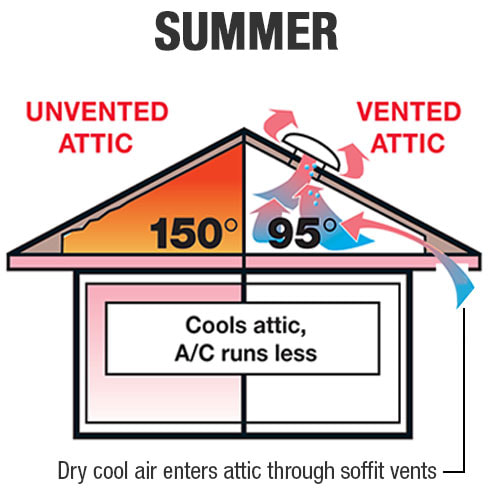
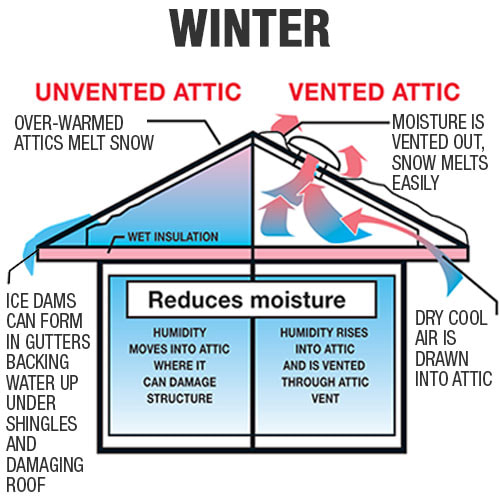



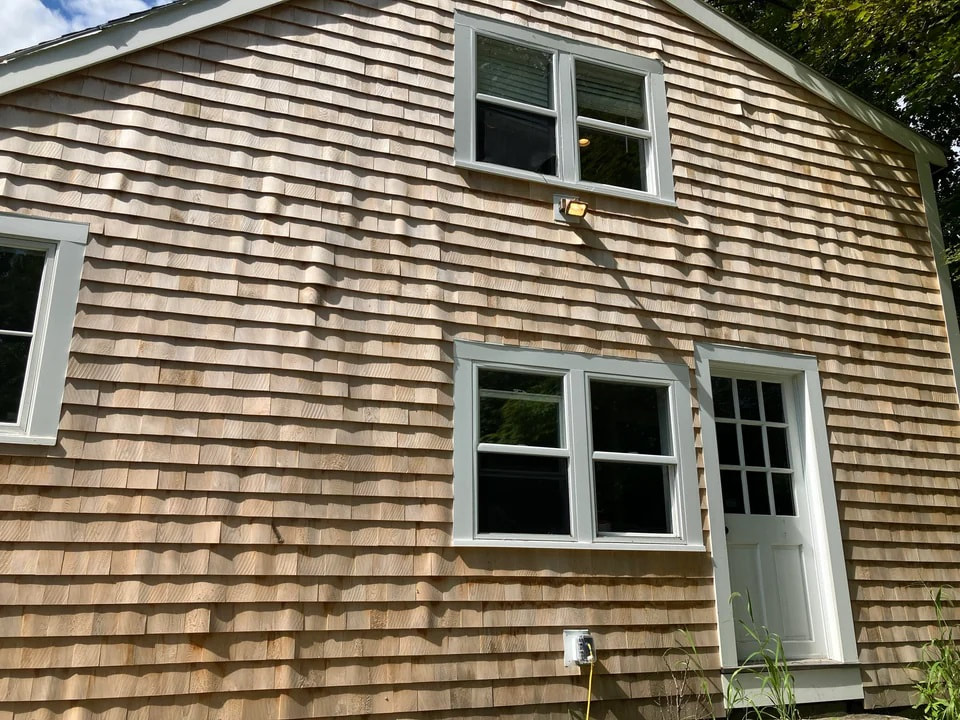


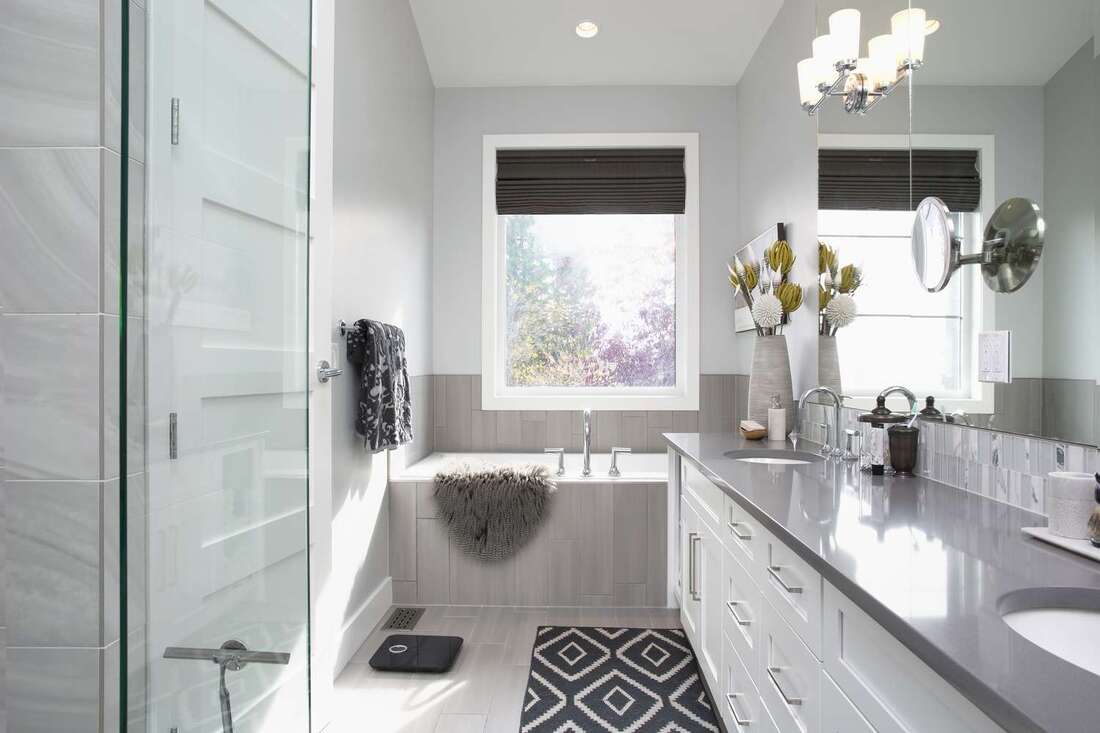
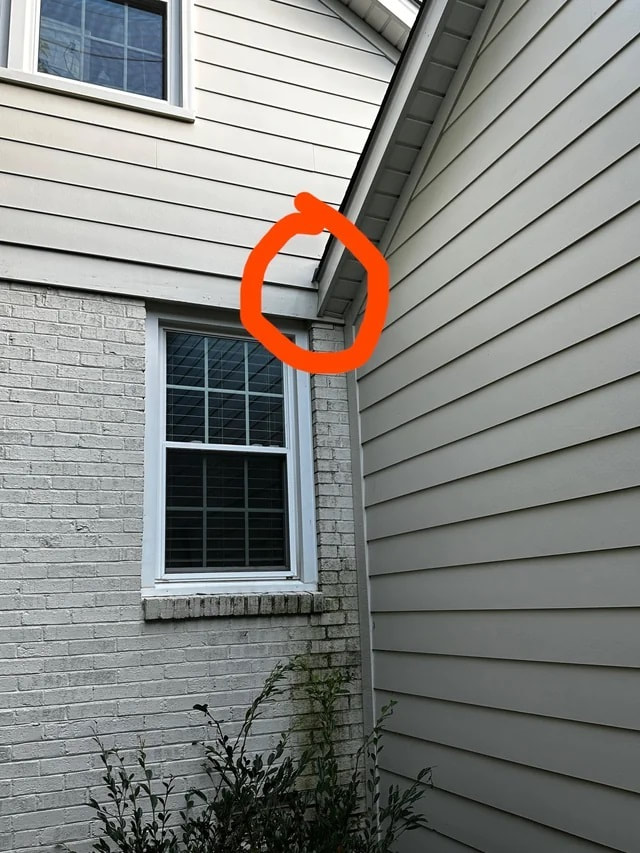
 RSS Feed
RSS Feed
